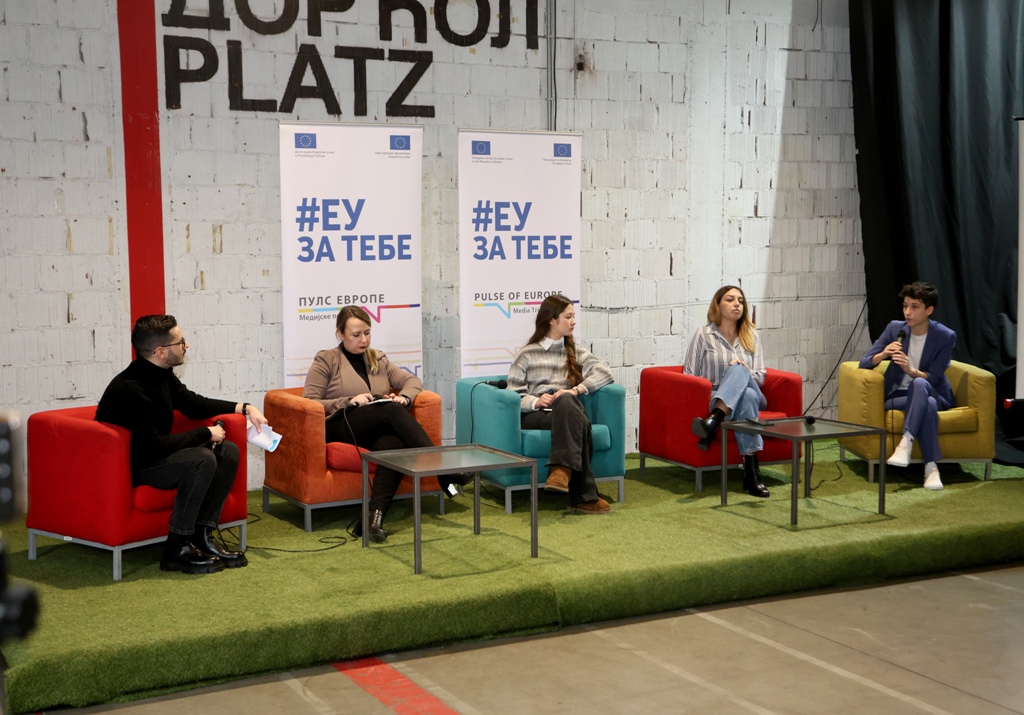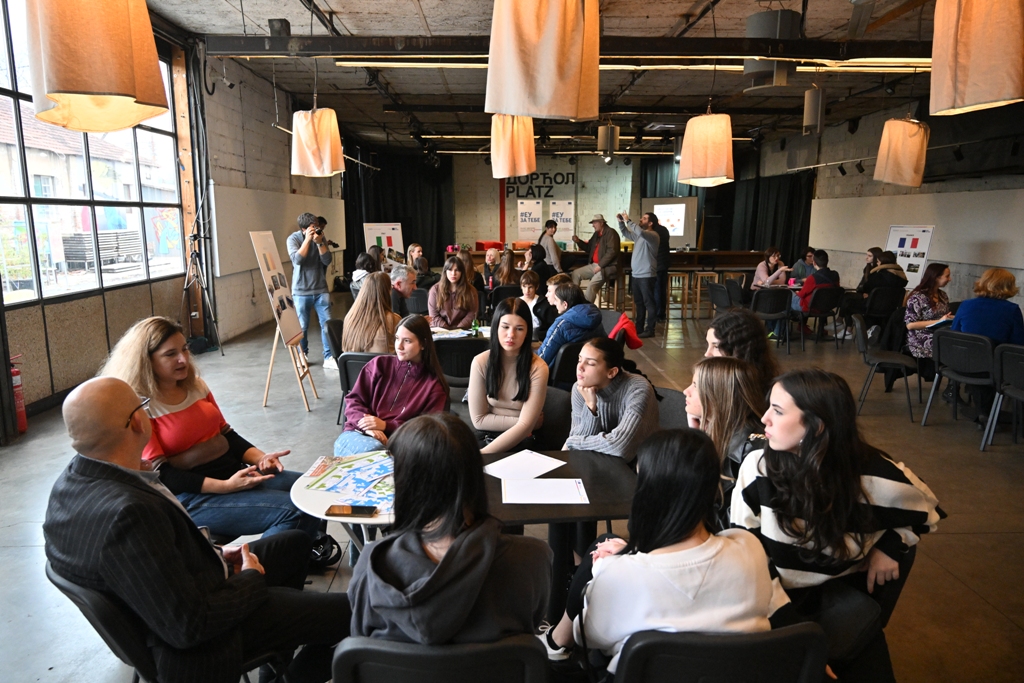High school students and students from Belgrade gathered at the first "Speed dating with Europe" event where they got to know about the best European practices in several EU countries, but also had the opportunity to discuss youth media and what topics are in the youth’ focus.
Designed as an event that will inform young people more about Europe in a friendly receptive way, "Speed dating" was organised by the Pulse of Europe - Media Trips to EU project in Belgrade, on 13 December 2023.
Before the speed dating session itself, a panel discussion on youth media was held, from which young people were told that they should think critically, look at everything through different sources and not shy away from talking about important topics.
Miljana Pejić, general secretary of the National Youth Organisation of Serbia (KOMS), stated that their research showed that in 2023 as many as 60 percent of young people was informed through social media, 36 percent via internet portals, will the tiny rest went to televisions and newspapers.
She said that another survey - "Youth in the media mirror 2022" showed that in traditional media, the largest number of content about the youth, as much as 43 percent, concerns the safety of young people, and that youth talk about themselves only in 11 percent of cases. Youth media, on the other hand, deal more with topics that are important to young people: activism and volunteerism, environmental issues, mental health, sexual violence. Two-thirds of young people say that they constantly encounter fake news, and 62.8 percent state that they know how to recognize it. The worrying fact is that in 93 percent there is no representation of sensitive groups of young people.

Social media manager of the Institute for Media and
Diversity - Western Balkans, Marija Jovanović, stated that the media,
especially those with a national frequency, have a greater responsibility to
adapt the way of reporting to youth, but that there is a narrative in the
public that young people do not want to be informed.
Jovanović said that the public creates an illusion that young people are one homogenous group and that not enough is said about the many different minority groups among them.
"The mainstream media reports superficially, young women are not represented, nor are members of the LGBTQI community, the Roma community. All those groups are represented by only three percent in the media. Then the media, in order to correct that mistake, when reporting on young people, report on the extremes, or very successful or unsuccessful ones, and mostly due to some external factor, when something happens," she said.
O radio journalist Jelena Božić stated that the radio was created out of necessity and with the intention of speaking in the language of young people about content created by young people.
"Since the pandemic, the most popular topics have been about mental health, about prejudices and stereotypes, which is not talked about in traditional media. About preventing violence, about human stories and what is very specific for young people, like festivals, mobility and opportunities for youth," she said.
According to Božić, O radio reports on young people, involves them in its podcasts and shows, often as experts. If we have young experts, we will always give them space, she said.
Journalist of "Glas mladih", the youth newsroom of the Šabac-based "Glas Podrinja" weekly, Katarina Simić, said that at first young journalists only wrote for the weekly, but realised that a website and Instagram were needed, because young people prefer those. She said that it took a long time for the youth newsroom to gain its audience. The topics that young people were most interested in were those about mental health, but we also report on politics, added Simić.

At the speed dating session, six EU countries were presented, which were visited by local media journalists through the "Pulse of Europe" project to research various topics:
Italy (education, environment protection), Portugal (energy transition, circular economy), Sweden (environmental protection and fight against climate change), France (urban development, environmental protection), Romania (local development, fight against corruption), The Netherlands (media, media freedom standards).
High school students from the Second School of Economics, eighth-grade pupils of "Starina Novak" Elementary School and students of various Belgrade faculties participated in a lively speed dating session, touring all six countries. They were given the most important data and information by journalists who reported from media trips to those countries: Jelena Kikić, Marko Somborac, Maja Stojanović, Dragana Živojnović Ivana Kešanski, Aleksandar Roknić, Momir Turudić, Ružica Vranjković and Dragana Ratković.



